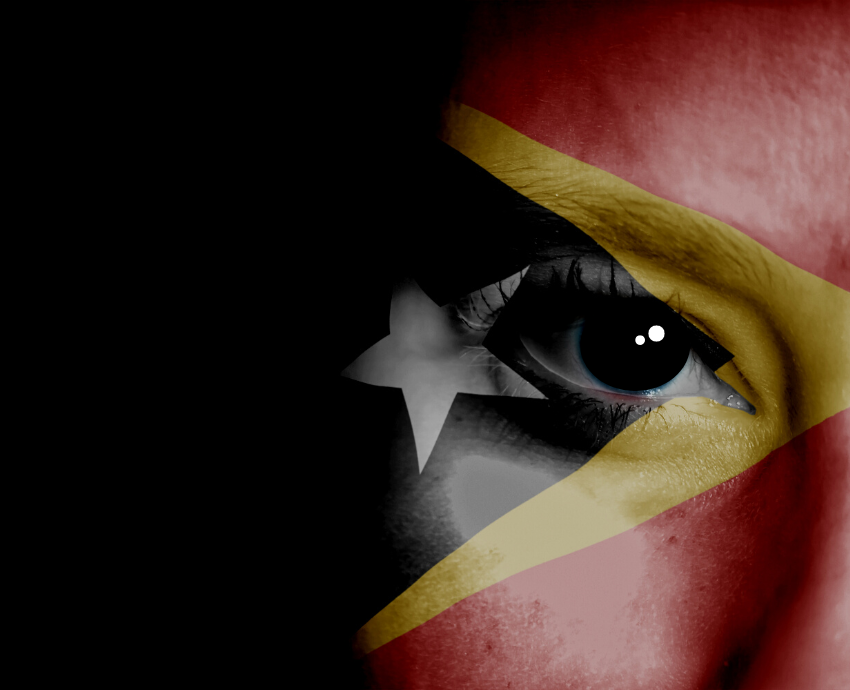
Asia, Justice and Rights (AJAR) is a non-profit human rights organisation with offices in Timor Leste, Bangladesh, Myanmar and Indonesia, working on justice for victims of past violations of human rights and to combat impunity. Joviana Guterres, AJAR’s program manager in Timor Leste, spoke to Green Left’s Coral Wynter and Jim McIlroy during their visit to the capital, Dili, on August 6.
* * *
What is AJAR’s role in Timor Leste?
Here, we mainly deal with what happened to women during the Indonesian occupation: the violations, the rape, the sexual abuse. We work with women survivors and what they need now.
We also work with the National Victims Association, which includes both men and women. Our work also focuses on reuniting the stolen Timorese children taken by force by the Indonesian Army to Indonesia.
The Chega! report in 2005 made many recommendations for women victims, and we are trying to make sure those recommendations are implemented. We are also working with the stolen children through Chega!-Women, which is solely a women’s organisation.
[Editor’s note: The Chega! report covers 25 years of protracted conflict and human rights violations and was produced by the Commission for Reception, Truth and Reconciliation in East Timor. Roughly translated from Portuguese, Chega! means “no more, stop, enough!”.]
Do women have many opportunities for employment in Timor Leste? What about childcare?
It depends a lot on your qualifications and educational background. If you have good English, good Portuguese, more general knowledge, have done extracurricular activities and [have] a good network, you have a greater opportunity of being employed.
For a young woman not speaking English, the opportunities are limited.
Childcare is done within the family. For those who have a supporting family, they can go back to work. One of my friends, who has just had a baby early this year, has to wake up early in the morning, get the baby ready and with her husband on a motorbike, drop the baby off to the grandparents. In the afternoon, they go and pick up the baby from her parents' place.
In the municipalities, it depends on how much support there is from the family [and whether] the husband prefers the woman to stay at home and not work, to look after the children.
Can you talk about your educational programs on women’s rights?
We have a curriculum activity on human rights and social justice, a school for activists, for youth to learn about these issues. Some are high school graduates, and others are students from different universities.
We teach them basic knowledge on human rights and LGBTI issues, as well. After several months of the course, we provide them with funds to go back to their communities to implement what they have learnt.
[After the course] they can help with the electoral process, with renovating houses of women victims. Elderly women receive a pension, a monthly allowance, but they need to have an identity card to receive it. Some women survivors don’t have an ID card, so our activists help them with that.
Do you run trauma counseling for women?
We do not do psychological counseling in the usual way. AJAR has its own methodology, which is more participatory. It’s called “stones and flowers”.
We bring women together to share their stories. At the end, we ask: How many stones do you still have? A stone is how much pain you still feel, and the flower represents how much they have overcome in their lives.
Many women are still discriminated against. Some have children as a result of rape during the war. We call them children born of war. The women have asked the Catholic Church to baptise their children. The Church asks: Where is the father’s certificate? And so refuses to baptise them. So the women and children are often ostracised in the village.
Some women were taken from their house and brought to the [Indonesian] soldiers every afternoon. The women did it to protect their families.
My mother was interrogated by the Indonesian military. She didn’t tell us until we released our book about surviving impunity. My mother had a signature on a piece of paper that looked the same as a guerrilla leader’s [signature]. They said she was working for the guerrillas. They captured her and took her for interrogation.
Her younger brother was with her during the interrogation. She didn’t tell us everything.
Some women were sexually abused. They had to take all their clothes off; they were electrocuted, the army burnt cigarettes on their bodies.
This all occurred during the war from 1974‒99. We made a short animated film, called Speaking Out [Konta-sai], about women survivors. In it, Maria Isabella tells her story and how she survived the abuse.
How is AJAR funded?
AJAR is a non-profit organisation and is based on support from donors. We get some funding from European trade unions.
The Australian Embassy gave us some money to celebrate 20 years since the independence referendum. There was a youth exchange program between Timor Leste and Australia.
There is some money from the Cabinet of the Prime Minister, [via the Civil Society Support and Social Audit Services] SASCAS, that supports social organisations. We apply for that and maybe receive $20,000 for six months. It's a bit of a struggle.
[For more information visit, http://www.asia-ajar.org. To support AJAR, you can donate to asia-ajar.org/donate/.]